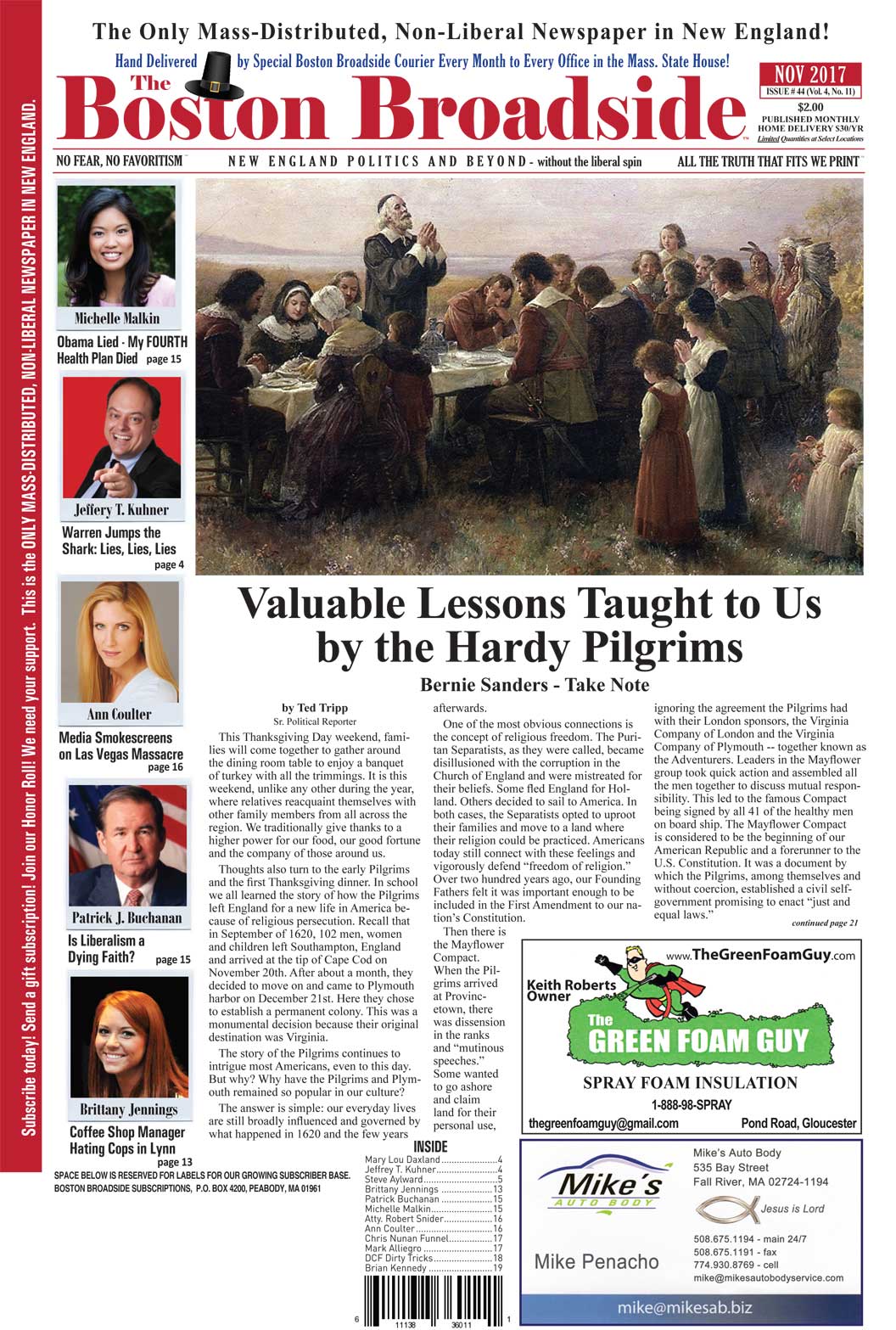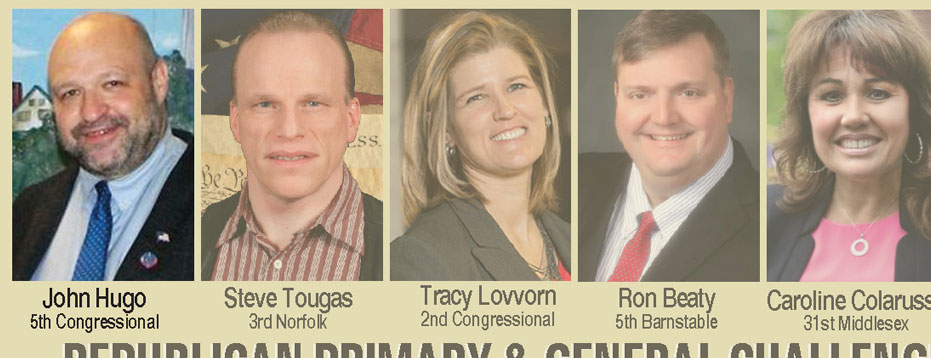And Why Every Republican and Independent Should Care
by Chanel Prunier
Renew MA Coalition Executive Director,
former National Committeewoman, Massachusetts Republican Party
Over the past several months, even the past several cycles, various pundits have argued the divide in the Massachusetts Republican Party is about moderates v. liberals, or more recently, Trump v. anti-Trump. While some folks might look at it that way, those who look deeper will see that the divide in the Republican state committee isn’t really about these quarrels.
When we look back to the state committee races earlier this year, Governor Charlie Baker was heavily involved to “take control” of the Party. The end result was a closely divided Party, with the April National Committeewoman’s race ending in a 37 to 41 vote. But what did it take to earn Governor Baker’s endorsement in these elections? What did his candidates have in common?
Some have claimed it fell along moderate/conservative v. Baker liberal lines, but that’s not true. Baker backed many strong conservatives, including individuals like Carl Nelson of Wellesley and Mike Case from the Berkshires. He even supported Alice Shattuck of Melrose, who had openly supported his GOP primary opponent, Mark Fisher, and voted for Fisher at the 2014 convention—dispelling the notion that Baker’s endorsements were designed to purge the state committee of his former primary opponent’s supporters.
Whom did Baker actively oppose? Often it was individuals who went out of their way to be team players, by endorsing and working for Baker pre-primary in 2014, such as Frank Ardinger of Leominster and Bonnie Johnson of Boylston.
Others claim it’s a Trump v. anti-Trump divide. This is obviously wrong. While prominent Trump supporters like Amy Carnavale and Janet Fogarty went unopposed by the governor’s team, other Trump backers such as Steve Aylward and Charles Grillo overcame an aggressive push in favor of Baker administration employees.
So where is the dividing line? The Republican state committee is split into two factions, and the divide is actually about the fundamental purpose of the Mass. Republican Party.
Individuals received the governor’s endorsement for being the most likely to adhere to the establishment concept that the Republican Party’s central mission is the election and re-election of the top dog, regardless of who that might be, whether it’s Mitt Romney, Scott Brown, or most recently, Charlie Baker. They believe the state committee should be making decisions based on what’s most helpful to that person and the maintenance of that power.
The insurgents on the state committee have a more long-term vision: the Republican Party should be about the building of the Republican Party on all levels, and the promotion of the Republican brand, independent of any one, elected official or candidate. The state committee should make decisions based upon what helps us gain legislative seats, build Republican town committees, and increase Republican registration—among other priorities, including what helps our Republican governor. He’s one of many Republican elected officials and candidates whose interests we need to weigh and whose efforts we need to support.
These two competing philosophies fight for dominance in the committee, asking and answering the question: “What is the state committee’s job?” What strategy should the Republican Party pursue: the election of one major office holder? Or a broader-based strategy that focuses on electing Republicans at all levels?
The anti-establishment forces of the state committee members care about issues, having a platform that really defines our beliefs, down-ticket candidates (county, legislative, municipal), training for campaign managers and activists, Republican Town Committee development, growing local grassroots organizations, building a municipal farm team, and growing the Party enrollment/registration, candidate recruitment everywhere, at all levels, to get the GOP message out.
These activists constantly compete with the philosophy that it’s only about the top of the ticket – whether it be Scott Brown, Gabriel Gomez, Mitt Romney, or Charlie Baker.
The contrasting view argues that Ryan Fattman and Lew Evangelidis are equally important as Scott Brown or Charlie Baker.
The current leadership does what it can to squash this view, often labeling those who have it as anti-Baker (or anti-Gomez, or anti-whomever), but nothing could be further from the truth. These state committee members simply see a Republican governor as one of many Republicans whom the state committee should be serving and helping, not the end-all and be-all of the Party. A rising tide lifts all boats, and a growing Party helps all candidates. This comes into play when a course of action is good for Charlie Baker and bad for everyone else, and then state committee members show which direction they think the Party should take.
One example of this that will loom large in 2017 and beyond concerns how they’re going to spend the Party’s finances. In 2010, before a number of anti-establishment leaders joined the committee, the Party spent almost nothing on down-ballot candidates, with over $3 million spent on Baker’s race. Legislative candidates were helped more by outside groups, and received less than $60,000 total from the Party. Candidate for state treasurer Karyn Polito’s request for a simple $3,000 cash contribution was denied.
The establishment’s recent goal of putting Baker administration employees (whose fates rise and fall with the re-election of just one Republican) onto the committee was designed to restore the kind of pre-2012 control that made defunding of down ballot races, en masse, possible. Baker endorsed those candidates (given the choices available), most likely to go along with whatever his advisers told state committee members was best for the top dog.
The next chairman of the Republican Party will hail from one of these two camps. As Ronald Reagan would say, this is a time for choosing for state committee members. They will pick among two candidates for chairman with very different perspectives on this division. Republicans across the ideological spectrum, conservative and liberal, pro-Trump and not enthusiastic about Trump, are all encouraged to ask their state committee members where they stand, and let them know the direction they think the Party should take. ♦
EDITOR’S NOTE: Visit www.votereform.org for State Committee Contact Information



